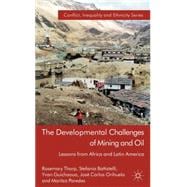
What is included with this book?
| List of Tables | p. ix |
| List of Figures and Maps | p. x |
| List of Acronyms | p. xi |
| Acknowledgements | p. xiv |
| Introduction | p. 1 |
| The themes and the plan | p. 1 |
| Our approach | p. 3 |
| Initial parameters for the case studies | p. 12 |
| Building and Re-engineering 'Good Governance' in Chile | p. 19 |
| Introduction | p. 19 |
| The interior era, 1830s-1930s | p. 20 |
| The CORFO era, 1930s-70s | p. 26 |
| The Hacienda era, 1970s to today | p. 30 |
| Escaping the curse? | p. 34 |
| Concluding remarks | p. 38 |
| Diamonds for Development? Querying Botswana's Success Story | p. 44 |
| Introduction: diamonds, development and the absence of conflict: Botswana's 'anomaly' | p. 44 |
| Economic centralization: institutional legacies and state formation | p. 50 |
| Attitudes and ideology of the elites: the unique contribution of a dedicated leadership | p. 56 |
| Political centralization: sub-national politics and the building of a hegemonic state | p. 63 |
| Conclusion | p. 72 |
| Extractive Dependence in Bolivia and the Persistence of Poor State Capacity | p. 80 |
| Introduction | p. 80 |
| Timing counts: mining-led growth and modern state development | p. 82 |
| Elite politics and the shaping of state capacity | p. 90 |
| The 1952 Revolution: autonomy without capacity | p. 96 |
| Concluding remarks | p. 101 |
| The Challenges of Mining-Based Development in Peru | p. 110 |
| Introduction | p. 110 |
| The institutional consequences of dependence on mining | p. 113 |
| The response to the challenges, 1990-2010 | p. 120 |
| Conclusion | p. 125 |
| Elites' Survival and Natural Resources Exploitation in Nigeria and Niger | p. 131 |
| Introduction | p. 131 |
| The politics of natural resources in Sub-Saharan Africa | p. 132 |
| Nigeria: using the oil rent to address the 'national question' | p. 138 |
| More than a commercial relation: uranium and Niger's strategy of extraversion | p. 149 |
| Final remarks | p. 160 |
| Extractives-Based Development and Developmental Outcomes | p. 168 |
| Introduction | p. 168 |
| The relative 'successes': Chile and Botswana | p. 172 |
| The 'failure' cases | p. 183 |
| Conclusion | p. 202 |
| The Challenges of Extractives and the Shaping Role of History | p. 212 |
| Index | p. 223 |
| Table of Contents provided by Ingram. All Rights Reserved. |
The New copy of this book will include any supplemental materials advertised. Please check the title of the book to determine if it should include any access cards, study guides, lab manuals, CDs, etc.
The Used, Rental and eBook copies of this book are not guaranteed to include any supplemental materials. Typically, only the book itself is included. This is true even if the title states it includes any access cards, study guides, lab manuals, CDs, etc.